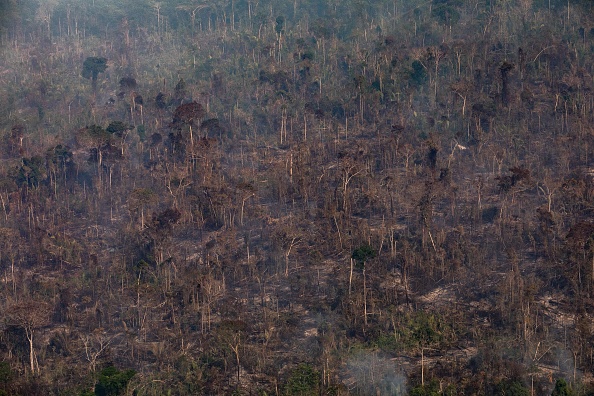Homero Aridjis is a writer, environmentalist and former ambassador to UNESCO.
MEXICO CITY — Governments often invoke national sovereignty as a justification for exploiting and devastating natural resources, asserting that the people will benefit if coal or oil or timber or copper or gold or whatever else is extracted from the Earth. The opposite is usually true: the people affected by the disappearance of their natural environment are often left in a worse state than before.
Who is entitled to sovereignty in the Amazon region? The descendants of peoples who have lived in and off the forest since time immemorial? Or the descendants of the conquerors and despoilers who brutally subjected the local inhabitants to their power? The descendants of these earlier indigenous societies have vested rights — indeed, vested ownership — in the Amazon.
Forty percent of the world’s tropical forests are found in the Amazon region, and perhaps 15 percent of Earth’s biodiversity. Every year the rainforest absorbs 2 billion tons of carbon dioxide from the atmosphere, braking climate change. But in the last 50 years, more than 300,000 of the Amazon’s 1.5 million square miles have been sacrificed to logging, agriculture and cattle ranching, mining, dams and road construction. The area lost is almost the size of Pakistan. And if current trends of deforestation and carbon dioxide emissions continue, by 2050 almost half of the Amazon’s tree species will be threatened with extinction.
“Jair Bolsonaro is without a doubt the head of state who poses the greatest danger to the environment.”
Partly because of the fires this year in the Amazon, the world is unlikely to reach its goal of limiting global warming to 2 degrees Celsius. This month, Brazil’s National Institute for Space Research reported that there have been 74,000 fires to date in 2019, 80 percent more than the same period last year. In the past month, there were more than 3,500 fires burning on indigenous lands in the Amazon. This is a planetary issue, not just one of sovereign concern to Brazil.
Brazil’s president, Jair Bolsonaro, a former army officer, is without a doubt the head of state who poses the greatest danger to the environment. On July 27, during a ceremony with the military, he declared his intention to exploit the Amazon’s biodiversity and disparaged environmental NGOs. He also criticized what he labels the “indigenous land demarcation industry” practiced by previous administrations. In his zeal to sacrifice the environment to agriculture, Bolsonaro approved the use of hundreds of new pesticides, many of which are banned in the European Union. Five hundred million honeybees died over a three-month period in Brazil this year, a collapse that has been blamed on pesticides.
During a speech I gave at Yale Law School in 1992, I argued that we need an International Court of the Environment — “a tribunal for the prosecution of ecocides, whether they are [perpetrated by] countries, economic entities or individuals.” As the Amazon dwindles before our eyes, if such a court existed today, Bolsonaro would be brought before it as a criminal.
“We need an International Court of the Environment, a tribunal for the prosecution of ecocides.”
However, in the absence of an international environmental court, he should be brought before the International Criminal Court in the Netherlands on charges of genocide. France, for example, could refer Bolsonaro’s war on Brazil’s indigenous citizens, whose lives and livelihoods are in jeopardy, to the ICC prosecutor, who would take it from there. The process is thorough, detailed and would take years, but the initial referral could be made expeditiously and would shine a spotlight on ongoing threats of genocide, applying pressure now and ultimately setting a cautionary precedent for other heads of government who see themselves as sovereigns of the Amazon region.
On the other hand, little protection is afforded by inclusion of a natural property in UNESCO’s World Heritage List. UNESCO can vote to include properties on a list called World Heritage in Danger to sound an alert that a place is under threat and as an incitement to action. Comprising 6 million acres, the Central Amazon Conservation Complex, a World Heritage Site, is the largest protected area in the Amazon. Will the situation of this vast natural property be debated at the next session of the World Heritage Committee in China next year?
As humans continue to trash the Earth, we need a planetary ethic that will address the question of whether relatively recently delineated political boundaries give governments the moral and ethical right to dispose of the complex masterpieces of nature on which the world depends, and whose disappearance will bring dire consequences extending far beyond artificial national boundaries.





